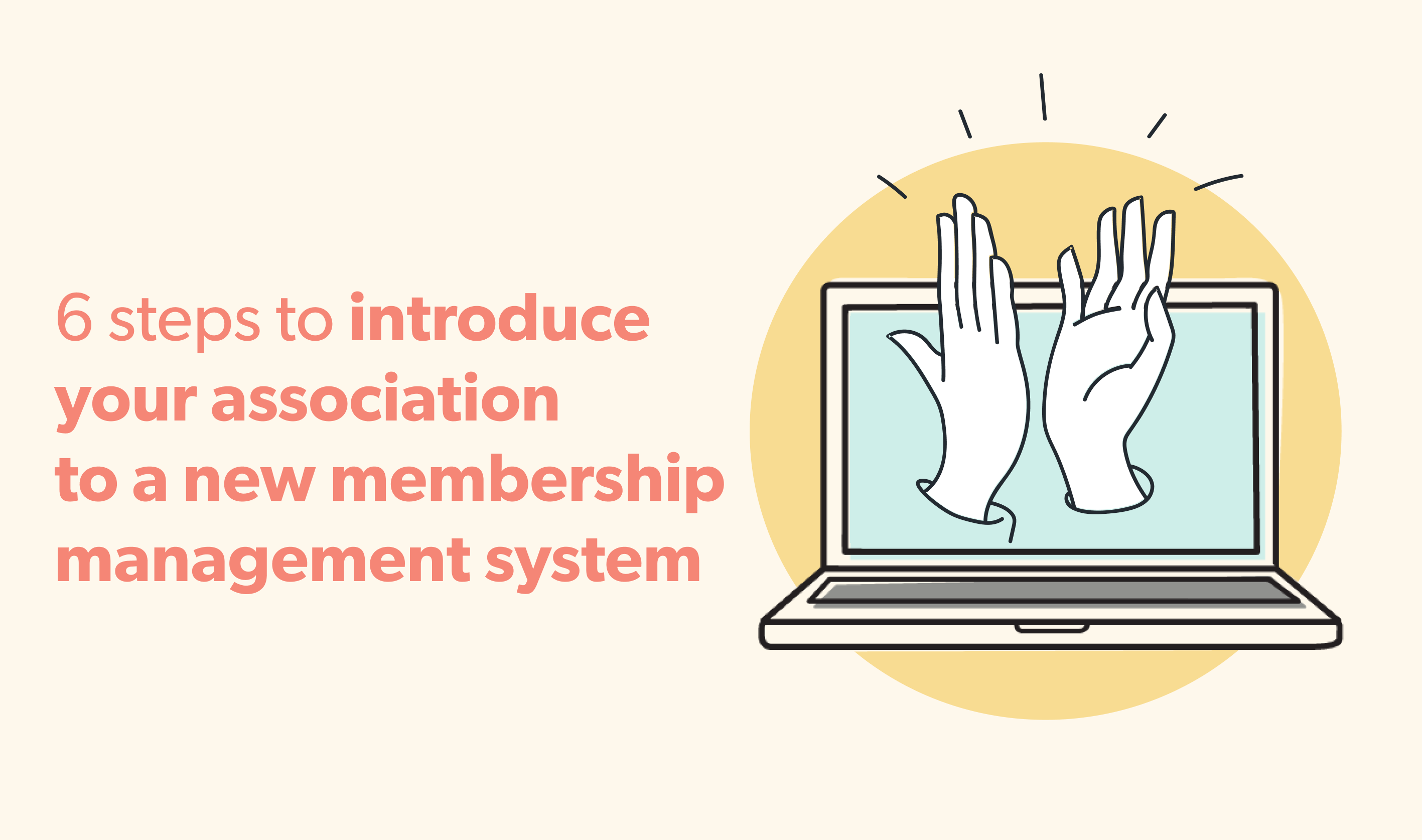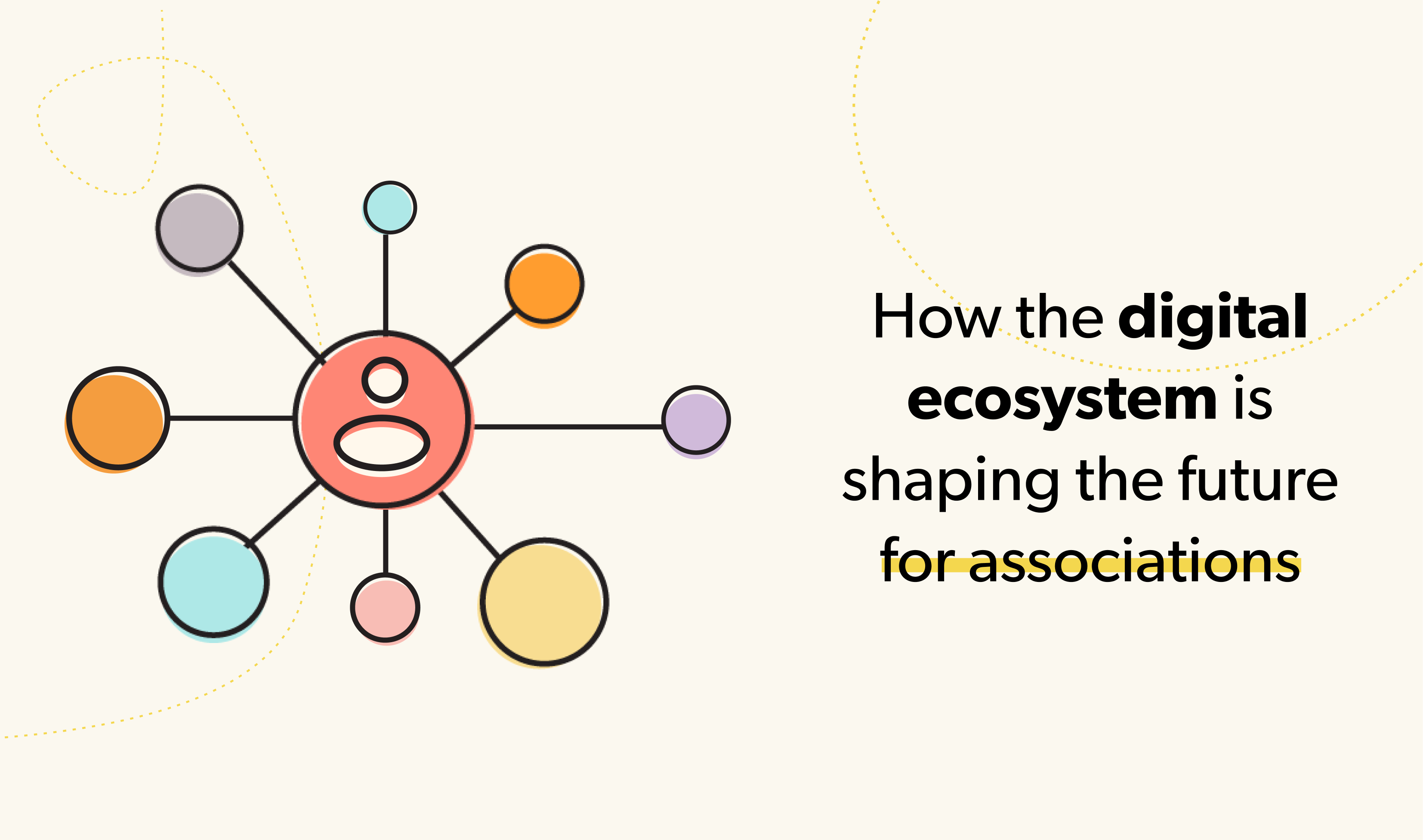The future of e-commerce for associations
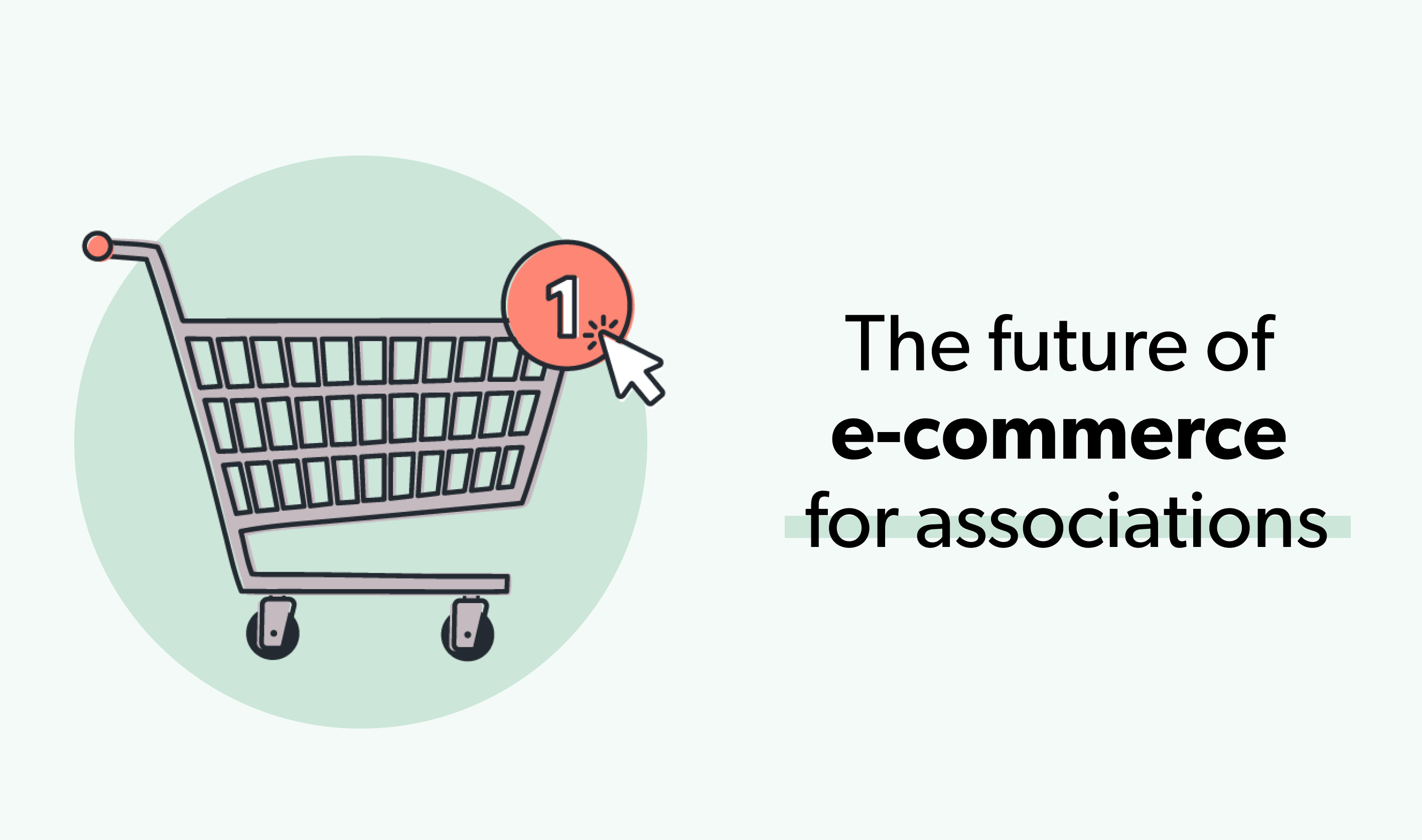
“Why can’t it be as easy as Amazon?” When it comes to e-commerce it’s hard to beat the simplicity of Amazon, but it’s probably safe to assume your association doesn’t share the same budget. Unlimited budget aside, there is still so much you can do by embracing modern e-commerce software to build an optimal shopping experience for your members.
Today more than ever, associations are looking to find ways to diversify revenue. The modern association seeks ways to simplify selling memberships and deliver additional products and services to members and non-members alike.
While you’ve been stuck using your AMS’ “store” module, e-commerce platforms have evolved to deliver streamlined shopping experiences and “sell anywhere” capabilities. The time is now for associations to rethink their e-commerce strategy and leverage concepts like product bundling, recommendation engines, selling through social media, and so much more.
Here at Wicket, we’re helping associations understand how modern e-commerce can diversify revenue, transform operations, and improve the member experience, all while being connected to a membership data hub.
In the modern association technology model, there are three core principles:
- A data hub storing all member and contact data, focused on integration and connectivity.
- An e-commerce platform to modernize selling goods and services.
- A modern cloud-based ERP (Enterprise Resource Planning) or FMS (Financial Management System) to manage finance and accounting.
Optionally, a data warehouse (or lake) for business intelligence and reporting.
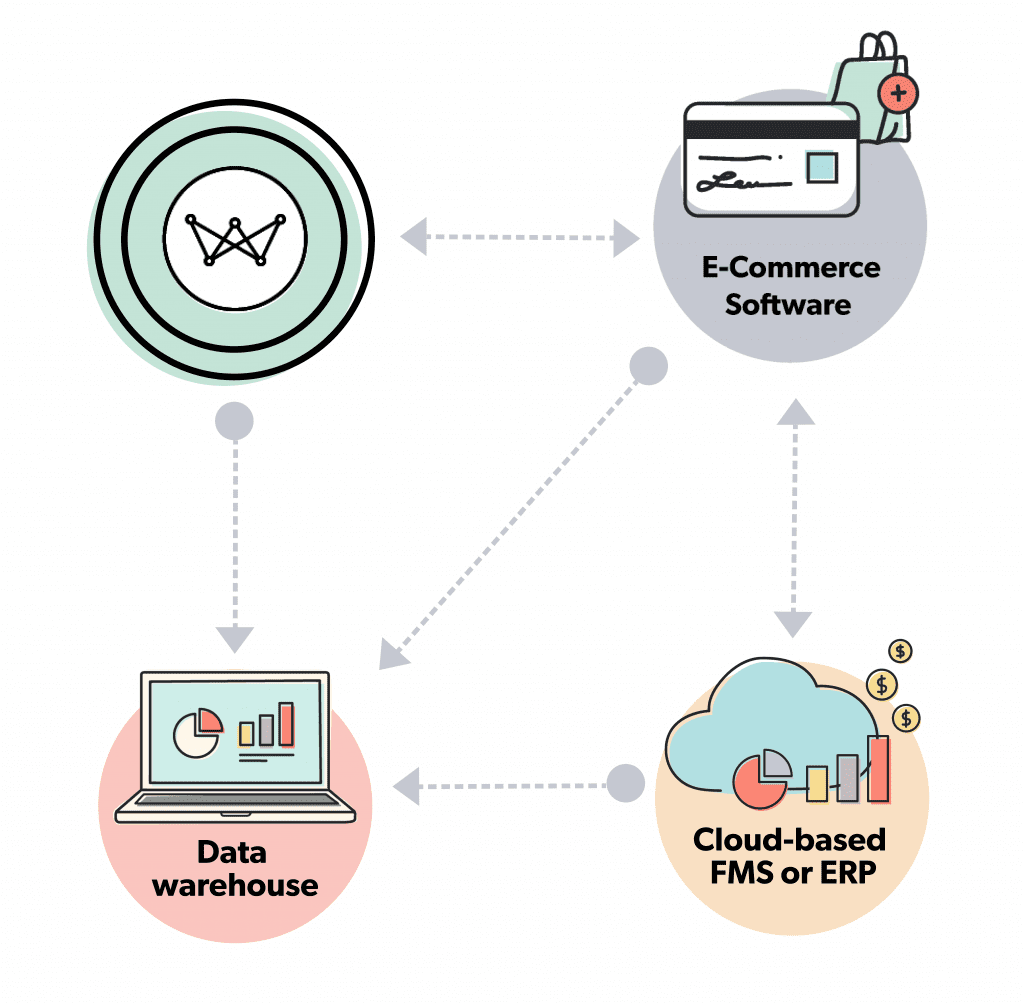
It’s time for modern e-commerce in associations
Why consider leveraging an e-commerce platform instead of your AMS’ “store” module? E-commerce systems are built to provide the best possible shopping experience for your members. Anytime we visit a website with items for sale we experience an e-commerce system: shopping on Amazon, buying an item on your favourite Shopify store, or browsing the multitude of vendors on Etsy.
As consumers, we have an expectation of what the shopping experience should be (and what it shouldn’t be). When you are trying to make a purchase and are presented with a confusing or complicated buying process, how likely are you to continue?
A unified shopping cart for associations
Modern e-commerce systems can provide a unified shopping cart for associations. Imagine your members registering for an event and adding a membership renewal to the transaction because they saw the member discounted rate. See below an example of an event registration page with a prompt to become a member to receive a discounted rate:

Or purchasing a downloadable publication and being prompted to make a donation to the foundation? Here is an example of a purchase summary page with a prompt to make a donation:
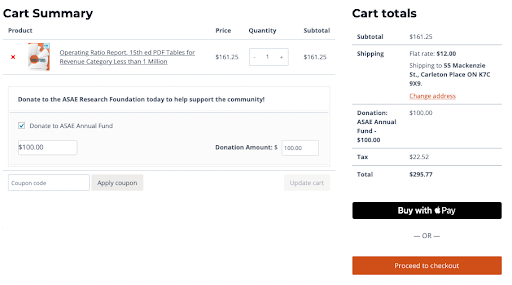
When we think about the various types of products and services that associations may sell, imagine the power of bundling them into a single, modern shopping experience for members.
How modern e-commerce can improve online purchases for associations
| Memberships | Most commonly sold on an annual basis, either on a calendar-based schedule (i.e. all members renew on June 1st), or on an anniversary-based schedule (members renew on the day they originally signed up). Modern e-commerce systems can automate membership renewals by keeping a credit card on file for auto-renewals. They also provide flexibility with membership terms and accommodate multi-year memberships, monthly or quarterly schedules, etc. |
| Subscriptions | Magazines, journals, or access to secure data sets are common use cases for subscriptions at associations. Like memberships, modern e-commerce platforms can automate processes and provide ultimate flexibility and bundling. |
| Courses | Often in the form of e-learning courses or “butt in seat” workshops, many associations offer courses to their members and non-members alike. E-commerce platforms can support discounting member pricing for courses, and automatic assignment of course access through integration with Learning Management Systems (LMS) and Training Management Systems (TMS). |
| Publications / Books | Delivered as physical books or downloadable publications, associations commonly act as an information hub for their members. E-commerce systems provide the ultimate flexibility for the sale, delivery, and shipping of physical goods while providing robust features to deliver and restrict access to downloadable products. |
| Donations | Many associations, particularly professional associations, have an established foundation and/or PAC for fundraising. While robust donor management platforms exist, modern e-commerce systems can meet associations’ needs by supporting donations at checkout, one-off and recurring donations. |
| Event registrations | Associations often manage conferences, workshops, and other events for their members. E-commerce systems can support processes for event registration purchases. For simple non-conference event registrations, modern e-commerce systems can sell tickets, collect attendee information, and provide basic ticketing functions. |
| Swag / Hard products | Whether selling t-shirts as part of an advocacy initiative or coffee mugs to members, associations often sell physical goods and swag. These products are at the heart of what modern e-commerce systems can provide with the ultimate flexibility in product configuration and variations. |
The five advantages of leveraging e-commerce
- Increased memberships by promoting discounts
When a user signs up for a membership, displaying potential discounts on products – such as event registrations, publications, or subscriptions – is a powerful tool for converting lapsed members and gaining new members. - Increased revenue by bundling and recommending products
We see it every day on Amazon and our favourite online stores: “Other users also viewed these products” or “These two products are often bought together.” E-commerce platforms are specifically designed to cross-promote, bundle, and maximize potential revenue for the vendors they serve. - Increased exposure by selling on social
Instead of only selling on your association website, modern e-commerce systems take it to the next level through tight integration with social platforms. Share your entire product catalogue directly through Instagram, Facebook, and other popular social platforms, available to purchase at the click of a button. - Recaptured sales through automated drip campaigns
How often do you leave a shopping cart with items in it, then receive emails or texts encouraging you to return to the store? E-commerce platforms can automate the process of recapturing customers who shopped but didn’t buy, resulting in more converted sales. - Faster customer support with powerful administration
E-commerce systems provide powerful behind-the-scenes tooling. Your association staff can feel empowered with robust tools and workflows to manage orders, invoices, and payments. Get the data you need, provide fast customer support, and manage your product catalogue with ease.
Choosing an e-commerce system
There is a vast array of e-commerce systems available. To help with your decision making, we’ve produced a guide to e-commerce systems for associations which is a great starting point.
We particularly ❤️ WooCommerce at Wicket; our experience has shown that WooCommerce has the most robust set of out-of-the-box functionality to meet the needs of associations.
Want to explore how modern e-commerce can transform your association?
Get in touch with us here at Wicket if you’d like to learn more about how separating e-commerce from your AMS can benefit your association. While we don’t deploy e-commerce platforms ourselves, we have tight integrations with platforms like WooCommerce, and great partnerships with experts in the field we can introduce you to.




